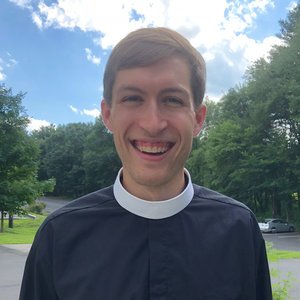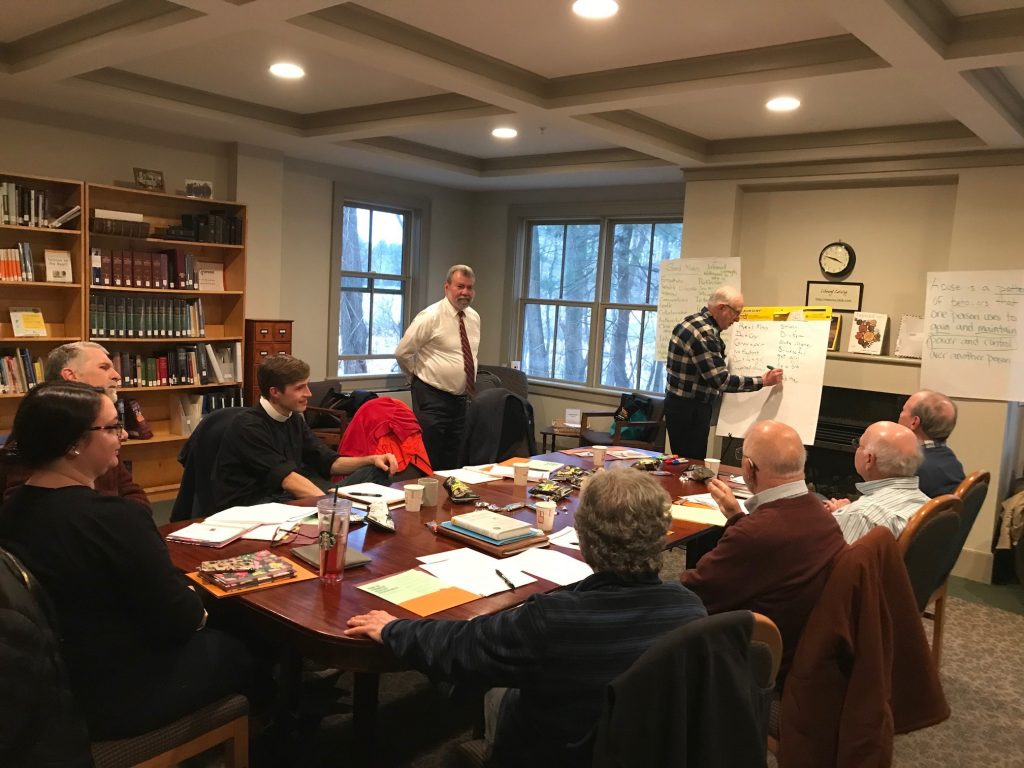I often describe my work of community engagement as “supporting the supporters.” We know that not all survivors will come through REACH’s doors, but most will turn to someone. A friend, a family member, a teacher, someone they trust. For some survivors, a faith community has the potential to be one of the strongest foundations of support available. While not all survivors identify as people of faith, for those who do, their faith may be a source of both strength and community.

A few months ago, I was asked to come speak at a local church, St. Anne’s of the Field, who have long been a supporter of REACH. I asked, as I always do, to chat with someone prior to coming to learn more about the community and what folks would be hoping to learn from our conversation. I was connected with their assistant priest, Rev. Greg Johnston. We had a great conversation on the phone, and he joined the workshop I led. After the conversation, I reached back out to him to see if we could meet for coffee. When we did, we spoke about his experience ministering to his congregation, my experiences working with various faith communities, and we brainstormed a bit how we could partner. And then, he asked a question of me that I had never been asked before: “In your ideal world, what could I do to support your work?”
My brain started running… I had never been asked this type of question by a clergy person before. And yet, here was an enthusiastic young man eager to find out what he could do. He knew that time constraints may not make everything possible, but of my dream, what could we make happen now? This question is one I’ve spent time thinking about. I’ve blogged about ways that faith communities can make space for survivors of abuse in the past, and talked through the ways he, as clergy and a leader of his congregation, could make a difference for survivors. I shared that learning about the issue of abuse, starting conversations in one’s own community, planning an event, and knowing resources available for survivors and those who abuse are often the best starting points.

Around this time, the Sudbury-Wayland-Lincoln Domestic Violence Roundtable, which I work closely with through my role at REACH, was forming a committee of men to plan men’s engagement strategies under the umbrella of the White Ribbon Movement. I invited Greg to join the committee, and he agreed! The committee is composed of eight men, including community members, other faith leaders, and State Representative Carmine Gentile, who gather about every other week to plan action in their community. They’ve decided to facilitate a series of small group discussions with men and boys on what it means to be a man, which will culminate in a half day summit entitled “Tough Guys and Gentle Men: Healthy men in the age of #MeToo” on March 14 (snow date on March 28). To help them in this effort, I designed a one-hour workshop and facilitated a “train the trainer training” with them earlier this month. (To learn more about how to schedule a small group discussion in your community, please email me at lauren@reachma.org!)
As if participating in this active small group wasn’t enough, Greg also brought REACH in to facilitate a workshop with a high school youth group that meets regularly at the church. Several of the students had interacted with REACH through their high schools or middle schools already, but loved the opportunity to discuss healthy relationships in a more familiar space. One reflected, “It was so much more comfortable to talk about this stuff here than in the classroom! I’m so glad you came!” Greg has also facilitated small group on masculinity with adults in his congregation, and has several more planned already.
Having coffee with Greg that day, I never would have expected so many opportunities of connection would come from it. And yet, what Greg is creating at his congregation is a community where discussing healthy relationships is being upheld and normalized. And, in doing this work together, we can support one another as folks come forward with stories of their own relationships or concerns for friends or family. Working with faith communities means creating strong partnerships. In my ideal world, this is what community engagement looks like. Community members who may not have the answers, but discover how they can offer support. Not everyone will be able to do all that Greg has done, but I believe we can all do something. Whether it be hosting a workshop or having coffee, there are countless places to start. And no matter where we begin, the more people who come forward and start conversations, the more trusted resources survivors will have to turn to when they need support. I’m inspired by Greg’s action, and so grateful for the dedication he has brought. And I hope to continue connections with other leaders, faith connected and secular, and support them as they find their way of engaging in preventing abuse in their community.
If you’re feeling inspired, send me an email! I’d love to have coffee with you. Who knows where it will lead?





